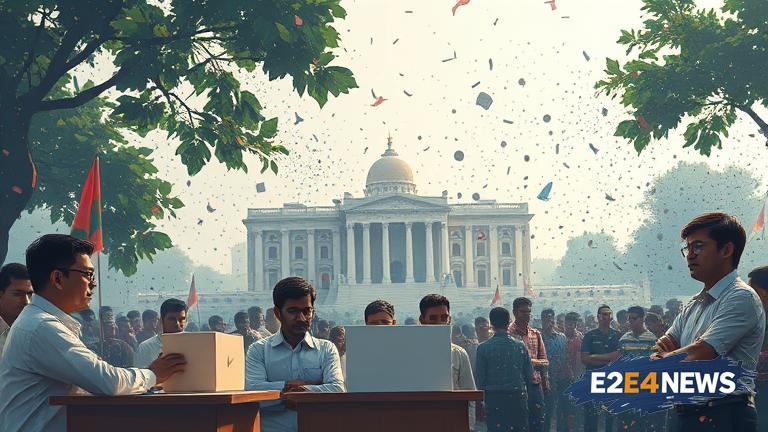The JUCSU elections, which took place at the University of Dhaka, have been marred by controversy and allegations of misinformation and bot attacks. The elections, which were held to elect student representatives to the university’s student union, saw a significant amount of fake news and propaganda being spread on social media platforms. This has led to concerns about the integrity of the electoral process and the potential for external interference. The use of bots to spread misinformation has been particularly problematic, with many candidates and their supporters using automated accounts to disseminate false information and sway public opinion. The university administration has been criticized for its handling of the situation, with many students and faculty members calling for greater action to be taken to prevent the spread of misinformation. Despite these challenges, the elections were largely peaceful, with many students turning out to cast their ballots. However, the results of the election have been disputed, with some candidates alleging that the outcome was influenced by the spread of misinformation. The incident has highlighted the need for greater awareness and education about the dangers of misinformation and the importance of verifying information before sharing it on social media. It has also underscored the need for universities and other institutions to take steps to prevent the spread of misinformation and protect the integrity of their electoral processes. The use of social media monitoring tools and fact-checking initiatives could help to mitigate the spread of misinformation in future elections. Additionally, universities could consider implementing measures such as voter verification and secure online voting systems to prevent external interference. The JUCSU elections have also sparked a wider debate about the role of social media in elections and the need for greater regulation of online platforms. Many experts have called for social media companies to take greater responsibility for preventing the spread of misinformation on their platforms. The incident has also highlighted the importance of media literacy and critical thinking skills in today’s digital age. As social media continues to play an increasingly important role in shaping public opinion and influencing electoral outcomes, it is essential that individuals are equipped with the skills and knowledge necessary to navigate online information effectively. The JUCSU elections have provided a valuable lesson in the importance of verifying information and being cautious of misinformation. The university administration and students must work together to prevent similar incidents in the future and ensure that the electoral process is fair, transparent, and free from external interference. The incident has also sparked a wider conversation about the need for greater transparency and accountability in university elections. Many students and faculty members have called for greater disclosure of campaign financing and spending, as well as more robust measures to prevent voter intimidation and coercion. The JUCSU elections have highlighted the need for universities to take a proactive approach to preventing the spread of misinformation and protecting the integrity of their electoral processes. By working together and implementing effective measures, universities can help to ensure that their elections are fair, transparent, and free from external interference. The incident has also underscored the importance of international cooperation and collaboration in preventing the spread of misinformation. As social media platforms continue to evolve and play an increasingly important role in shaping public opinion, it is essential that countries and institutions work together to develop effective strategies for preventing the spread of misinformation. The JUCSU elections have provided a valuable lesson in the importance of cooperation and collaboration in protecting the integrity of electoral processes. The university administration and students must work together to develop effective strategies for preventing the spread of misinformation and ensuring that the electoral process is fair, transparent, and free from external interference. The incident has also highlighted the need for greater investment in media literacy and critical thinking skills. As social media continues to play an increasingly important role in shaping public opinion, it is essential that individuals are equipped with the skills and knowledge necessary to navigate online information effectively. The JUCSU elections have provided a valuable lesson in the importance of media literacy and critical thinking skills in today’s digital age.
